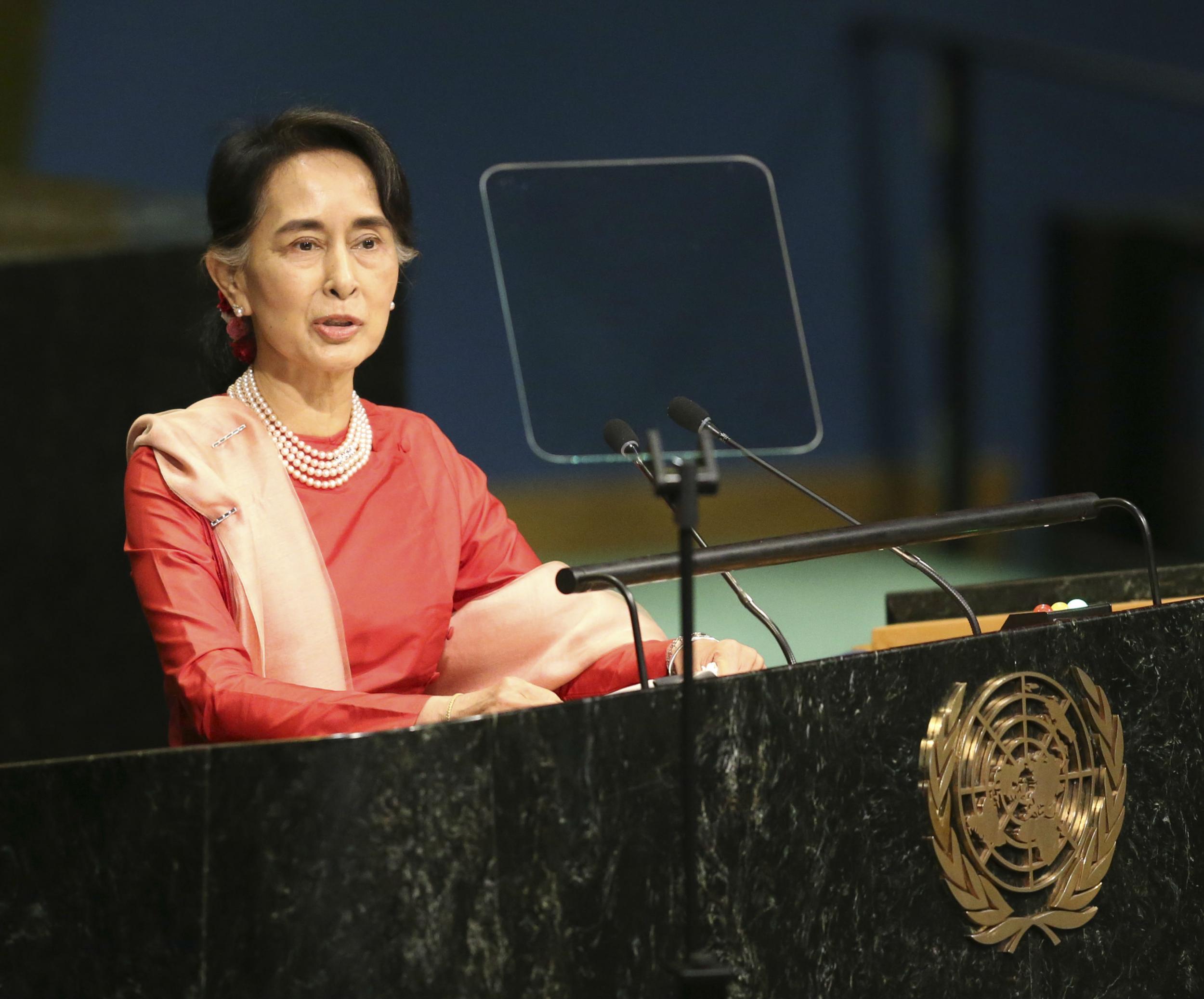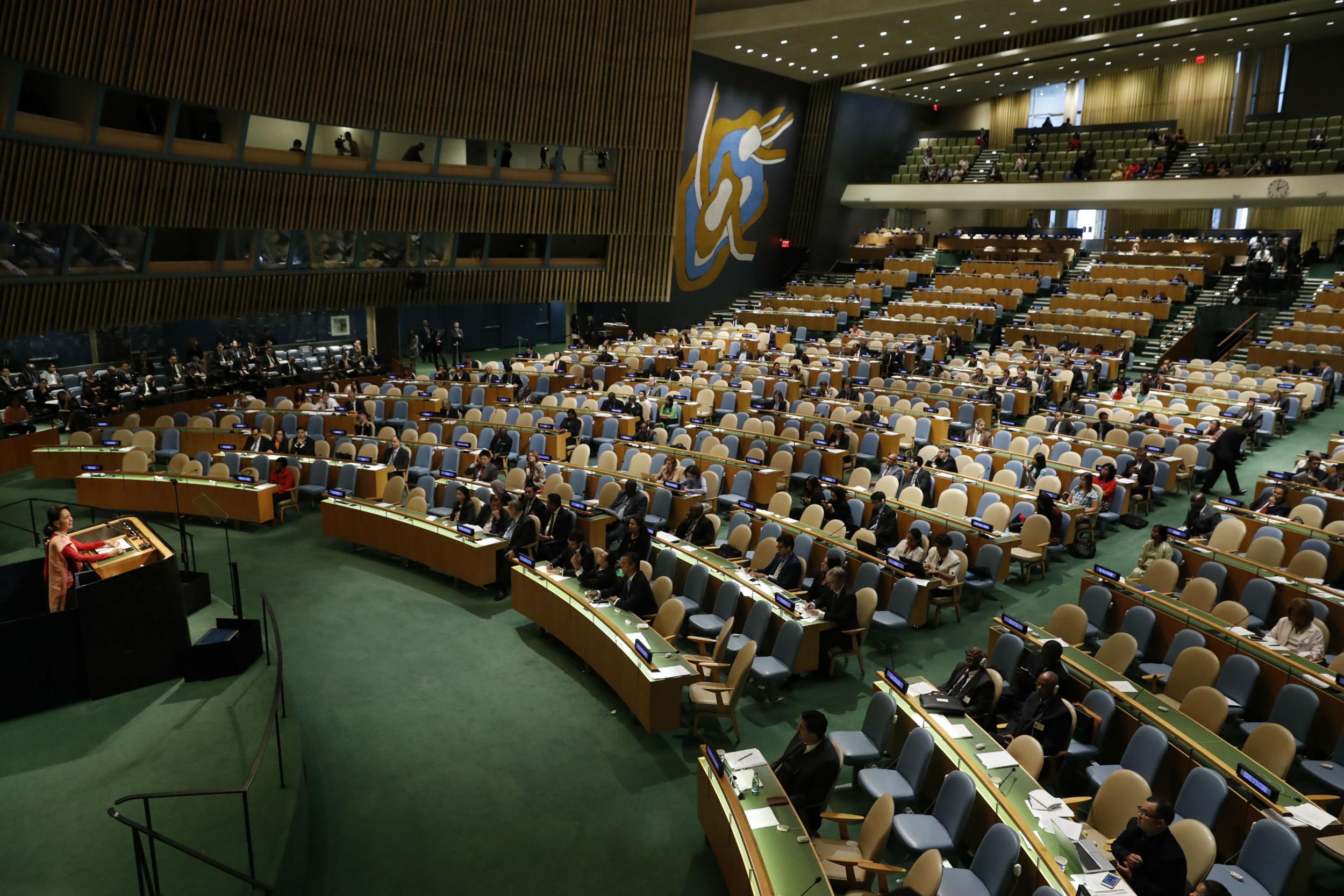Aung San Suu Kyi pledges to uphold minority rights - but refuses to use the word 'Rohingya'
The 71-year-old delivered her first address to the UN General Assemly as her country's leader

Aung San Suu Kyi, in her first address to the UN General Assembly as the leader of Burma, defended her country’s efforts to secure peace for its Muslim minority. But she refused to use the controversial name that some of that minority uses for itself - the Rohingya.
It has been six years since the leader of the National League for Democracy (NLD) opposition party was released from house arrest, and the slightly-built leader has appeared regularly at forums around the world. Yet her address on Wednesday, was her first to the UN as the de facto head of her country, and in her specially created position of State Counsellor.
Ms Suu Kyi, 71, who has been criticised for doing too little to address the plight of the Rohingya Muslims in western Rakhine State, said the government did not fear international scrutiny, but asked “for the understanding and the constructive contribution of the international community”.

“We are committed to a sustainable solution that will lead to peace, stability and development for all communities within the State,” she said, according to the Associated Press.
“Our government is taking a holistic approach that makes development central to both short- and long-term programmes aimed at promoting understanding and trust.”
Ms Suu Kyi pointed to the establishment of an advisory commission for Rakhine State chaired by former United Nations Secretary General Kofi Annan, with a mandate covering basic rights and security issues. Critics have pointed out that no members of the Rohingya community are on the commission.
“By standing firm against the forces of prejudice and intolerance, we are reaffirming our faith in fundamental human rights, in the dignity and worth of the human person,” she said.
Increased freedom of speech since the military stepped back from direct rule in 2011 has allowed for the unleashing of long-held anti-Muslim sentiment in Burma. More than 100 people were killed and a number of neighborhoods were burned to the ground in 2012 when ethnic Rakhine Buddhists clashed with Rohingya Muslims.
Anywhere up to 140,000 people have fled their homes and taken up shelter in refugee camps.
Most Burmese - including many members of Suu Kyi’s NLD - do not accept the Rohingya as genuine Burmese citizens. Many of her colleagues refer to the Muslims as “Bengalis”, and Ms Suu Kyi has repeatedly declined to use the word Rohingya.
The Rohingya have long been persecuted, being seen by much of the majority Buddhist population as illegal immigrants from Bangladesh, even though many have lived in the country for generations. Most were stripped of their ability to vote in last year's election, which brought Ms Suu Kyi to power as de facto leader.
In Washington last Thursday, Ms Suu Kyi urged businesses to invest in Burma as a way to advance its democratic transition, a day after US President Barack Obama pledged to lift long-standing sanctions on the country
“We are committed to a sustainable solution that will lead to peace, stability and development for all communities within the state,” Ms Suu Kyi said on Wednesday.
The Nobel laureate is the daughter of Burma’s founding father, and spent around 20 years in detention, mostly house arrest, when she led the pro-democratic opposition.
Political reforms began five years ago, culminating in an election last November, won by her party. Although a junta-era constitution still bars her from the presidency and the military remains politically powerful, she effectively heads the government.
Join our commenting forum
Join thought-provoking conversations, follow other Independent readers and see their replies
0Comments